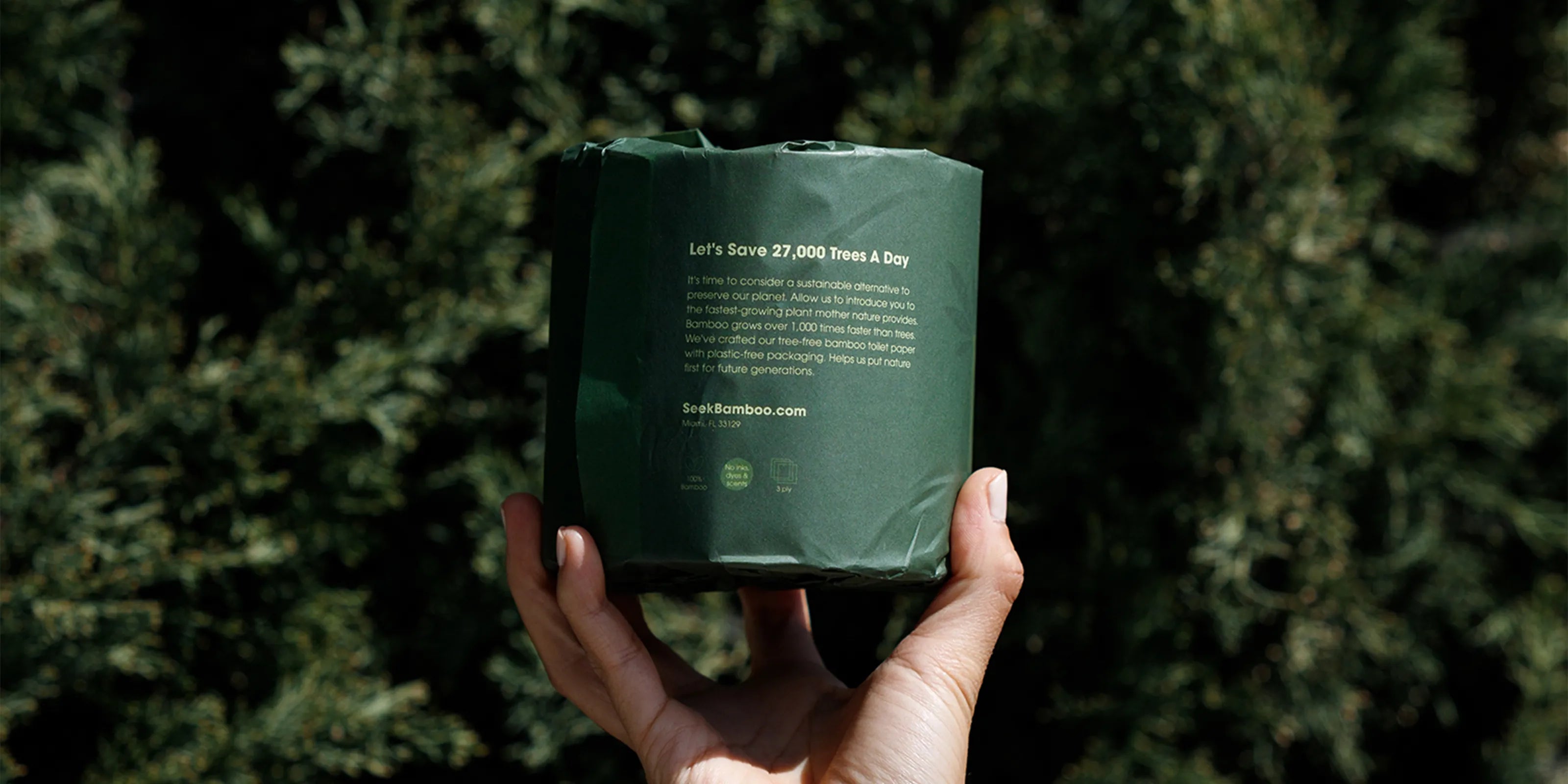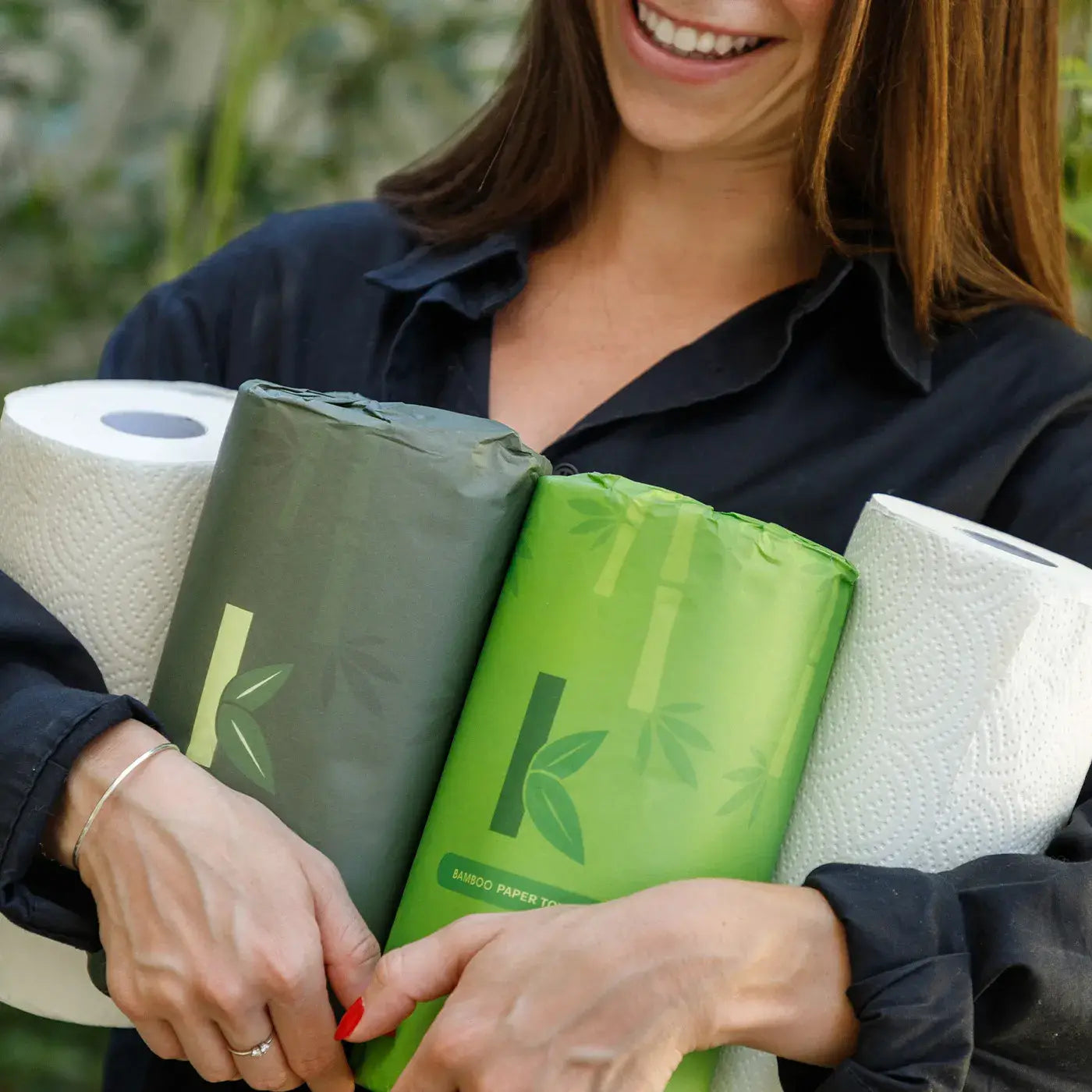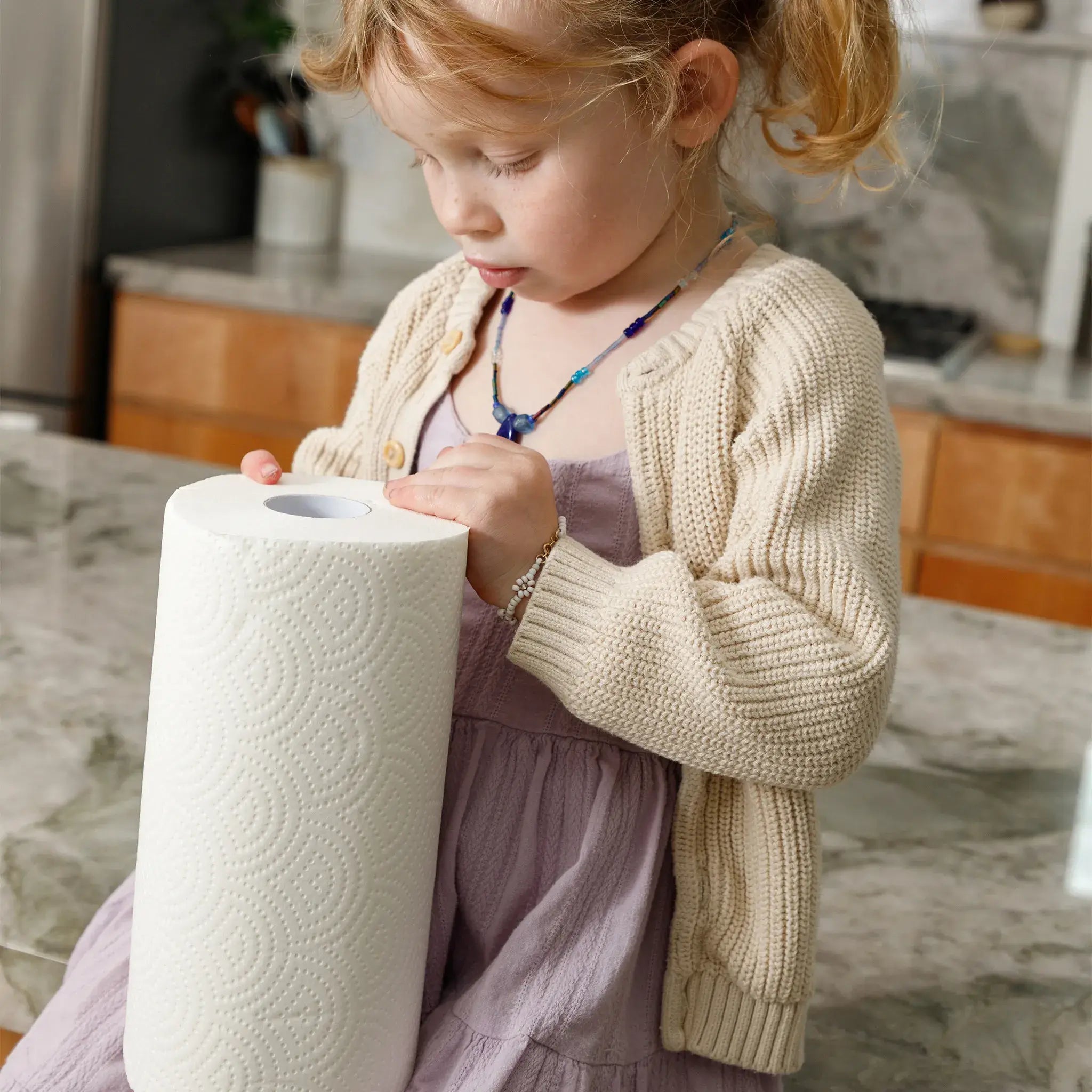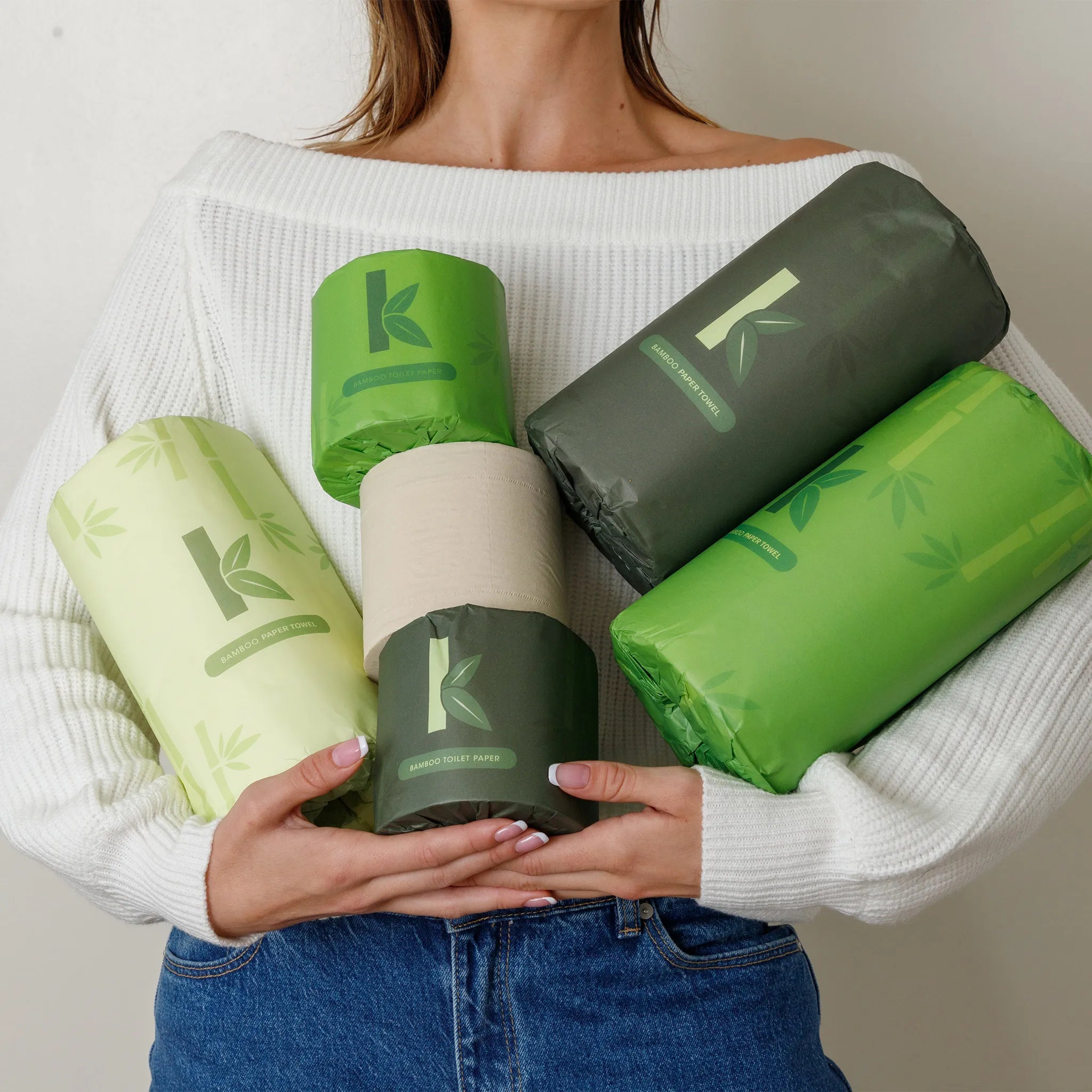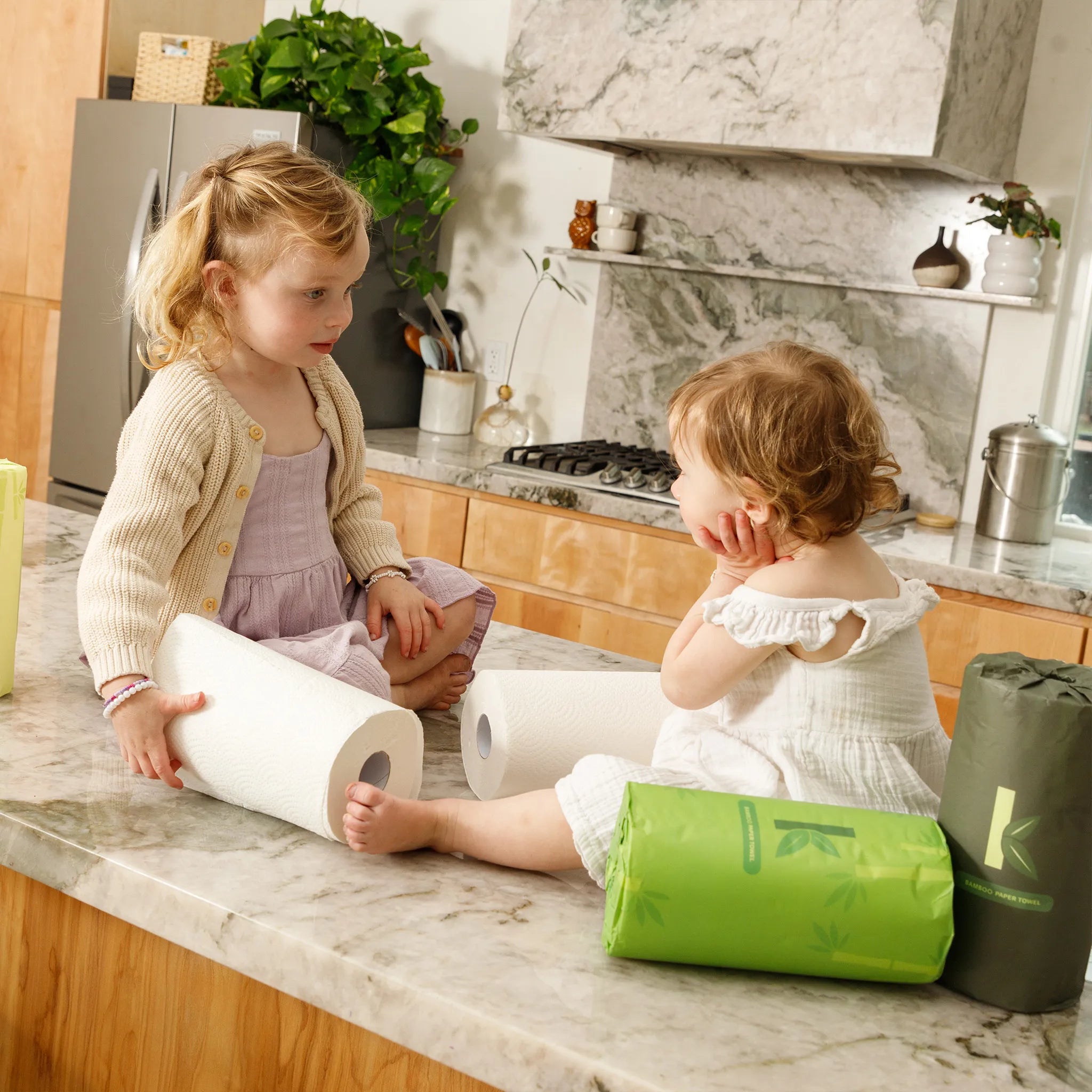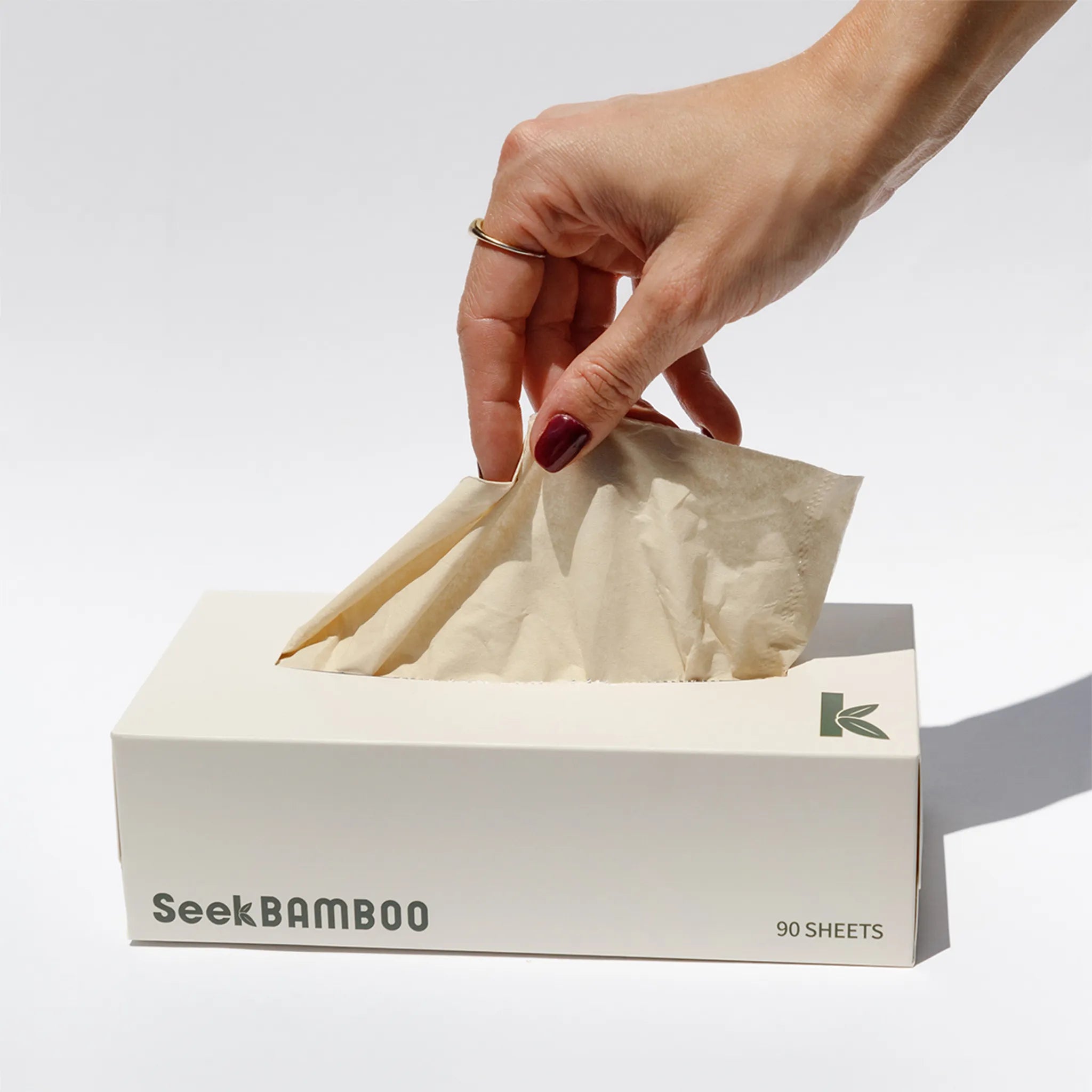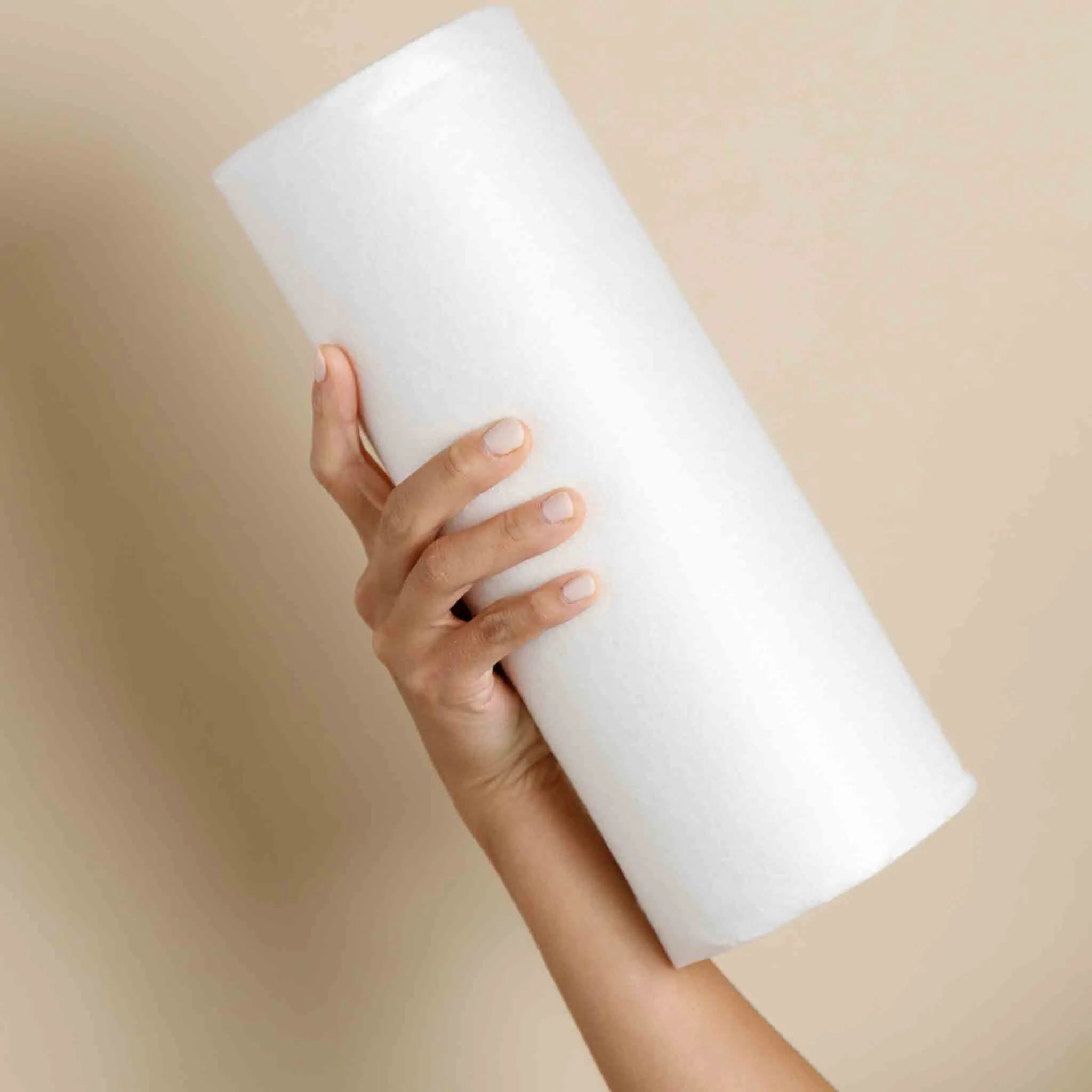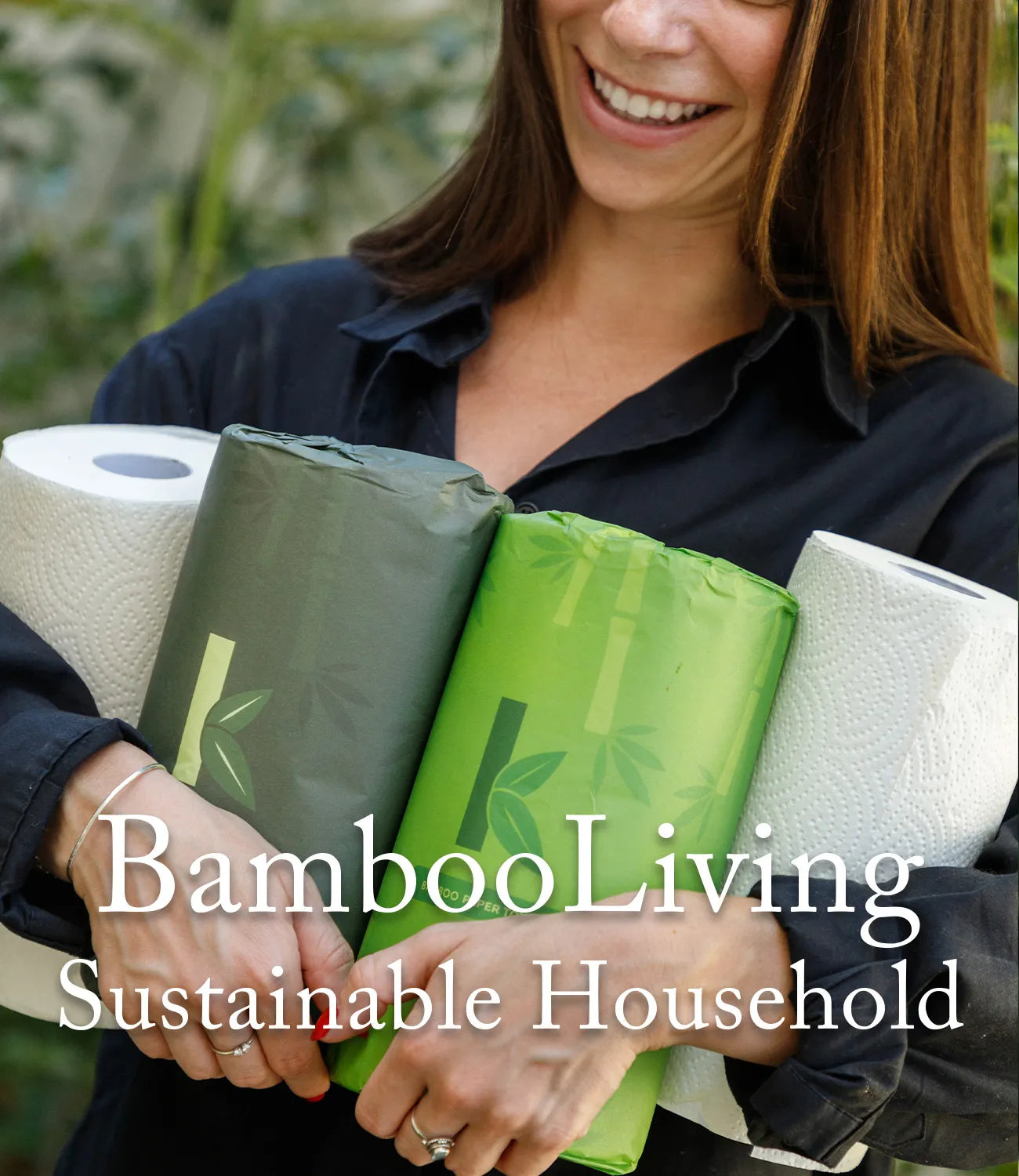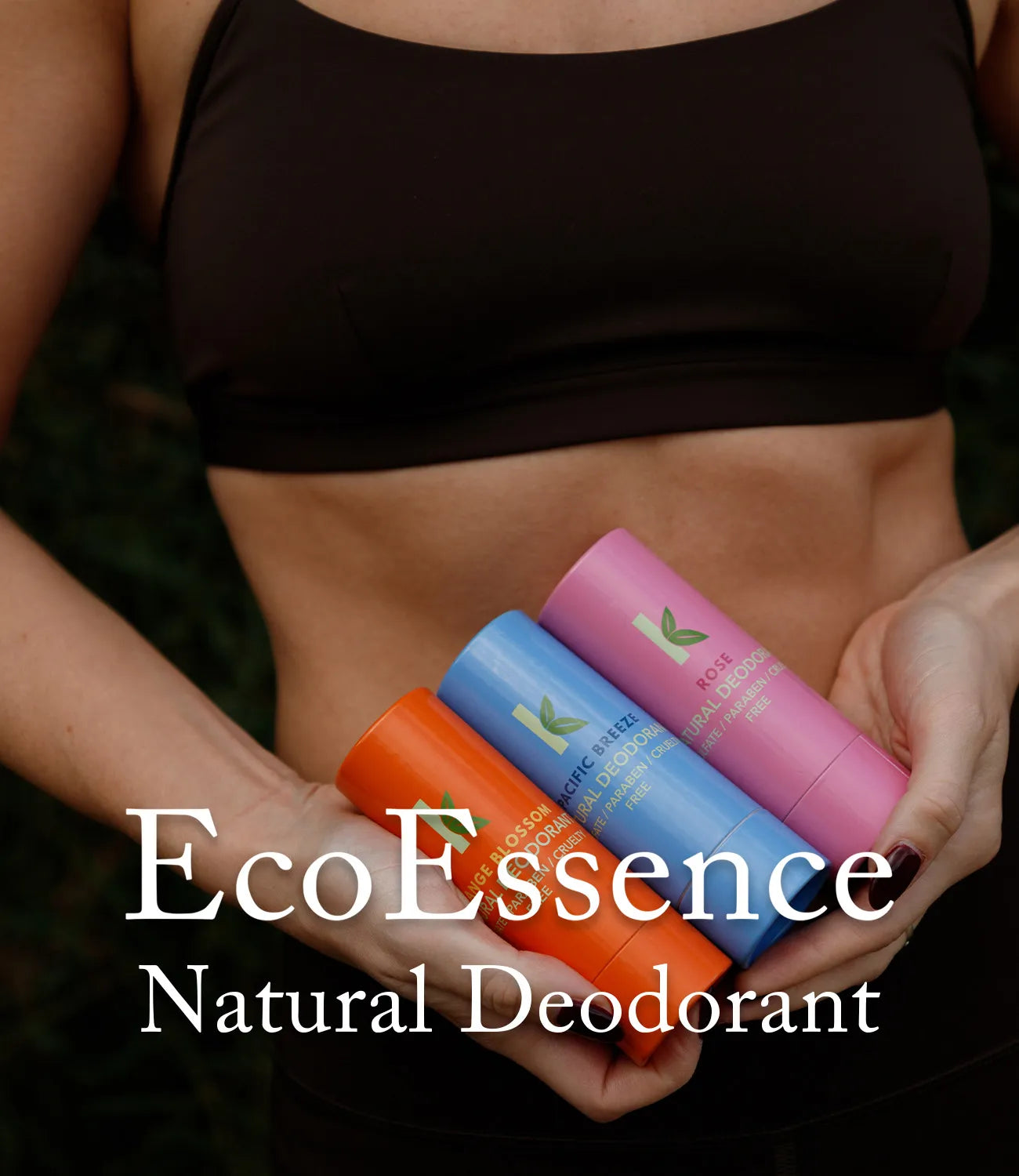Is Bamboo Toilet Paper Septic Safe?
What is Bamboo Toilet Paper?
In recent years, bamboo toilet paper has gained popularity as a sustainable and eco-friendly alternative to traditional toilet paper. As concerns about deforestation and environmental impact grow, more people are seeking products that are both gentle on the planet and effective in their everyday use. Bamboo toilet paper checks all the boxes, offering a renewable, biodegradable solution that's kind to both nature and your home plumbing.
In this section, we'll dive into what makes bamboo toilet paper unique, its eco-conscious benefits, and how it's made to provide a softer, greener experience for your bathroom.
How Bamboo Toilet Paper Breaks Down
One of the standout qualities of bamboo toilet paper is its ability to break down quickly and efficiently in water, making it an ideal option for septic systems. When flushed, bamboo fibers absorb water and begin to disintegrate at a much faster rate compared to conventional toilet paper made from wood pulp. This quick breakdown minimizes the risk of clogs and blockages, ensuring that your plumbing and septic system remain in good working condition.
Bamboo’s natural fiber structure allows it to dissolve smoothly, even in systems that are more sensitive to clogging, such as older pipes or low-flow toilets. Unlike certain types of recycled or thicker toilet paper, which can take longer to break down and create build-up over time, bamboo toilet paper disintegrates easily. This reduces the strain on your septic tank and leach field, preventing issues like sludge buildup or costly system failures.
Additionally, many bamboo toilet paper brands are free from harsh chemicals like bleach or synthetic additives, which can negatively impact the bacterial balance within septic systems. By using natural bamboo toilet paper, you're not only making an eco-friendly choice but also helping to maintain the health and efficiency of your entire septic setup.
Comparison with Regular Toilet Paper
When choosing the right toilet paper, understanding the differences between bamboo and conventional options is essential—especially when it comes to septic safety. Traditional toilet paper is typically made from wood pulp harvested from trees, a process that can contribute to deforestation and long-term environmental damage. In contrast, bamboo toilet paper is made from fast-growing, renewable bamboo, making it a more eco-friendly option.
One key difference lies in the fiber composition. Wood pulp toilet paper, especially thicker varieties like 3-ply or quilted versions, often takes longer to break down in water. This slower disintegration can increase the likelihood of clogs or build-up in your pipes and septic system. Even recycled toilet paper, while better for the environment than standard options, can sometimes contain shorter, coarser fibers that don’t dissolve as easily.
Bamboo toilet paper, on the other hand, is naturally designed to break down more quickly and smoothly. Bamboo fibers are long and strong, yet they dissolve efficiently when flushed. This makes bamboo toilet paper far less likely to cause blockages or overburden your septic system. Its rapid biodegradability ensures that it doesn’t accumulate in your septic tank, allowing for smoother operation and longer periods between necessary maintenance.
Furthermore, many conventional toilet papers are treated with chemicals such as bleach, fragrances, or dyes, which can disrupt the bacterial balance inside your septic tank. Bamboo toilet paper is typically free from these additives, offering a more natural solution that’s not only better for your septic system but also gentler on sensitive skin.
In summary, while regular toilet paper may still be the standard for many households, bamboo toilet paper’s quick breakdown and chemical-free composition make it the superior choice for anyone looking to protect their septic system and the environment
Environmental Benefits of Bamboo
Bamboo is often hailed as a sustainable superstar, and for good reason. When compared to traditional wood pulp used in conventional toilet paper, bamboo offers a far more eco-friendly alternative. One of its most notable features is its incredibly fast growth rate. Bamboo is technically a grass, and some species can grow up to 35 inches in a single day. This rapid regrowth means bamboo can be harvested more frequently without causing long-term damage to the ecosystem.
Unlike trees, which can take decades to mature, bamboo reaches harvestable size within just 3 to 5 years. Its natural resilience also means it requires little to no chemical fertilizers or pesticides to thrive. This reduces the environmental impact of farming bamboo, as fewer harmful chemicals are introduced into the soil and water systems. In contrast, the production of wood pulp for traditional toilet paper often involves deforestation and intensive chemical use, contributing to habitat destruction and higher carbon emissions.
Bamboo also has impressive carbon-sequestering abilities. It absorbs more carbon dioxide and produces more oxygen than trees, making it a powerful tool in combating climate change. Additionally, bamboo plants help prevent soil erosion thanks to their extensive root systems, which anchor the soil in place and protect against landslides or degradation.
When it comes to water use, bamboo is a more efficient crop compared to the trees needed for wood pulp. Bamboo requires significantly less water to grow and produce toilet paper, further reducing its environmental footprint. Moreover, bamboo toilet paper is often processed with fewer harsh chemicals, such as bleach or dyes, making it a more eco-conscious choice from production to disposal.
By choosing bamboo toilet paper, consumers are not only opting for a septic-safe solution but also contributing to a lower environmental impact. The sustainability of bamboo, coupled with its minimal resource use and ability to grow without harming ecosystems, makes it an ideal material for products like toilet paper, where daily consumption adds up quickly.
Impact on Septic Systems
One of the most critical factors for those with septic systems is choosing toilet paper that won’t cause blockages or excessive buildup in their tanks. Bamboo toilet paper is an excellent choice in this regard, as its soft texture and fast breakdown in water help prevent many of the common issues associated with septic systems.
Unlike thicker, quilted varieties of traditional toilet paper, which can take longer to dissolve, bamboo toilet paper is designed to disintegrate more quickly once flushed. Its natural fibers, while durable enough for daily use, break down easily in water, ensuring that it doesn’t accumulate in your plumbing or septic tank. This rapid disintegration reduces the risk of clogs, which can lead to backups and costly repairs if left untreated.
The softness of bamboo toilet paper is another advantage. Despite its strength, bamboo fibers create a gentle texture that doesn’t compromise on comfort. This soft texture is less likely to cause residue or paper buildup in the pipes, minimizing the risk of slow-draining toilets or septic tank overload.
By breaking down so quickly, bamboo toilet paper helps maintain the health of your septic system. When toilet paper accumulates in the septic tank, it can contribute to the formation of sludge—a dense, solid layer of waste that requires regular pumping. Bamboo’s ability to dissolve rapidly reduces the amount of solid waste entering the tank, allowing for a more balanced system where bacteria can efficiently break down the waste without interference.
Moreover, bamboo toilet paper is often free from harsh chemicals, such as chlorine bleach or artificial fragrances. These chemicals, commonly found in conventional toilet paper, can disrupt the delicate bacterial ecosystem within the septic tank. Healthy bacteria are essential for breaking down organic waste, and maintaining this balance is crucial for the efficient functioning of the septic system. Bamboo toilet paper’s chemical-free composition ensures that the natural bacteria in the tank aren’t harmed, contributing to the overall longevity and health of the system.
In summary, bamboo toilet paper’s quick breakdown, soft texture, and lack of harsh chemicals make it an ideal choice for households with septic systems. It minimizes the risk of clogs and stress on the septic tank, offering a safe and sustainable solution for both your plumbing and the environment.
Bamboo Toilet Paper vs. Wet Wipes
When it comes to personal hygiene, many people use a combination of toilet paper and wet wipes. However, while wet wipes might seem convenient for extra cleanliness, they often come with significant downsides—particularly when it comes to your plumbing and septic system. In contrast, bamboo toilet paper offers an eco-friendly and septic-safe alternative that is gentler on both your system and the environment.
One of the main issues with wet wipes is that they are often marketed as “flushable,” but in reality, most are not designed to break down in water as easily as toilet paper. Wet wipes are made with synthetic fibers like polyester and plastic, which can make them much more durable but also problematic for septic systems. Even wipes labeled as flushable can take a long time to break down, if at all, leading to blockages in pipes and sewage backups.
Unlike bamboo toilet paper, which is made from natural fibers that disintegrate quickly when flushed, wet wipes can accumulate in your septic tank, forming clumps that contribute to clogs and slow the system’s efficiency. Over time, this buildup can lead to more severe issues, including costly repairs or the need for more frequent septic tank pumping. In city sewer systems, wet wipes are a major cause of "fatbergs"—large masses of congealed fat and wipes that block sewer lines.
Bamboo toilet paper, on the other hand, is biodegradable and dissolves easily in water, making it a much safer option for septic systems. Its natural fiber composition ensures that it won’t accumulate in pipes or tanks, reducing the risk of costly clogs or system failures. Furthermore, bamboo toilet paper is free from the synthetic chemicals and fibers found in wet wipes, meaning it’s less likely to disrupt the balance of bacteria in your septic tank that’s essential for breaking down waste.
From an environmental perspective, bamboo toilet paper also has a clear advantage. Wet wipes are often made from non-biodegradable materials, meaning they take much longer to decompose in landfills or, worse, in the oceans where they contribute to marine pollution. Bamboo toilet paper, being derived from a renewable resource, is both biodegradable and compostable, ensuring that it leaves a much smaller environmental footprint.
In summary, while wet wipes may offer temporary convenience, they can cause significant damage to plumbing systems and the environment. Bamboo toilet paper is a septic-safe, eco-friendly alternative that provides a balance of comfort, efficiency, and environmental responsibility without the risk of blockages or pollution.
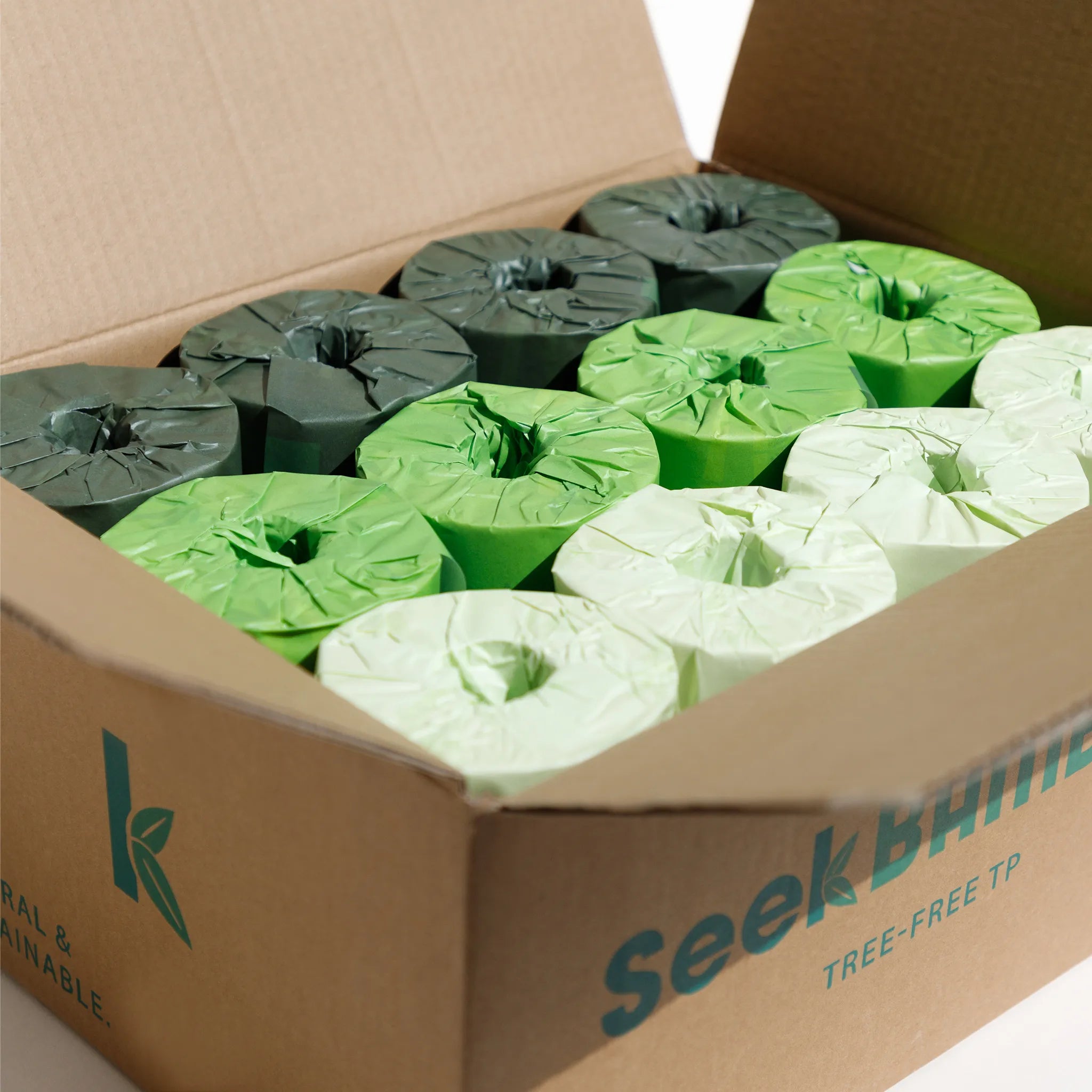
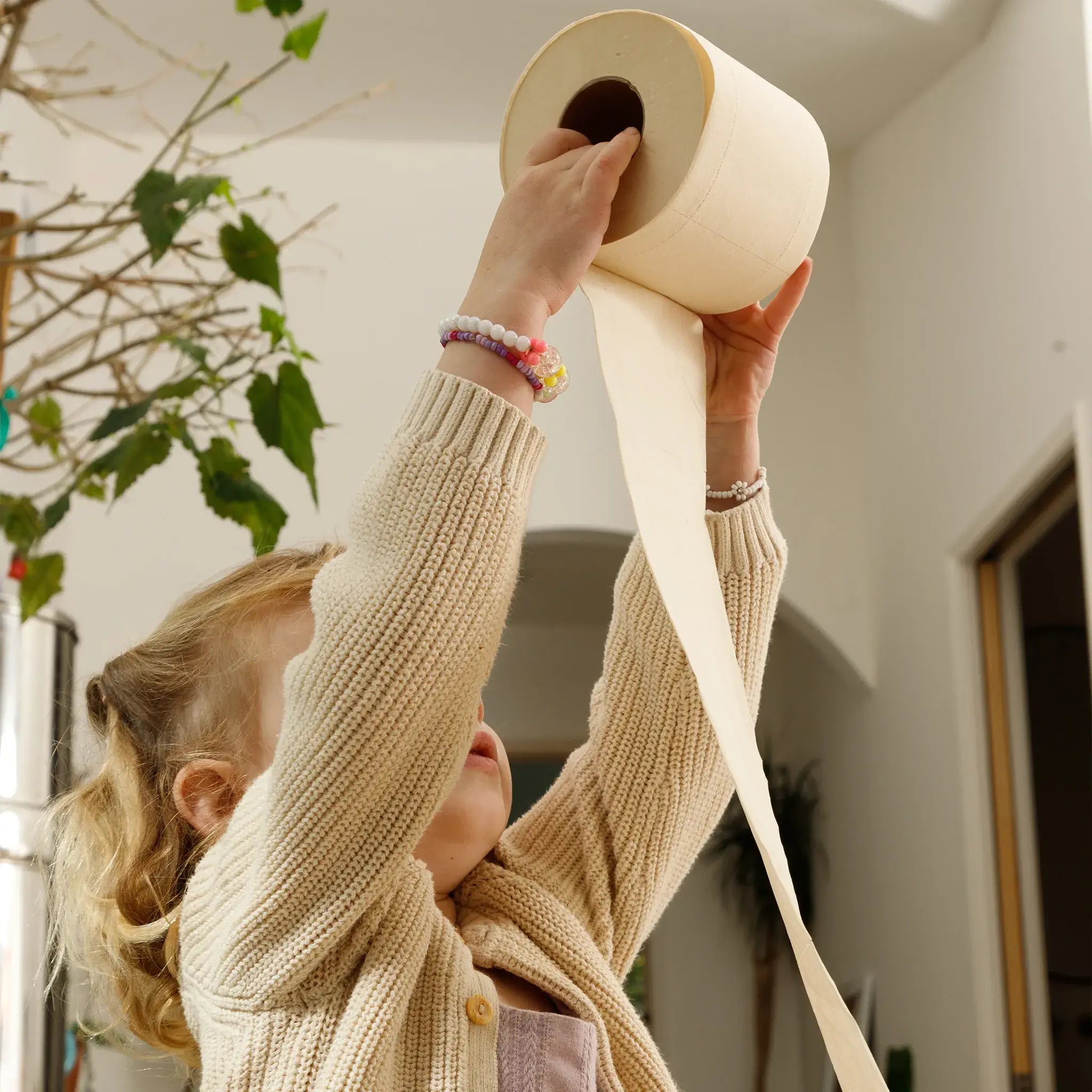
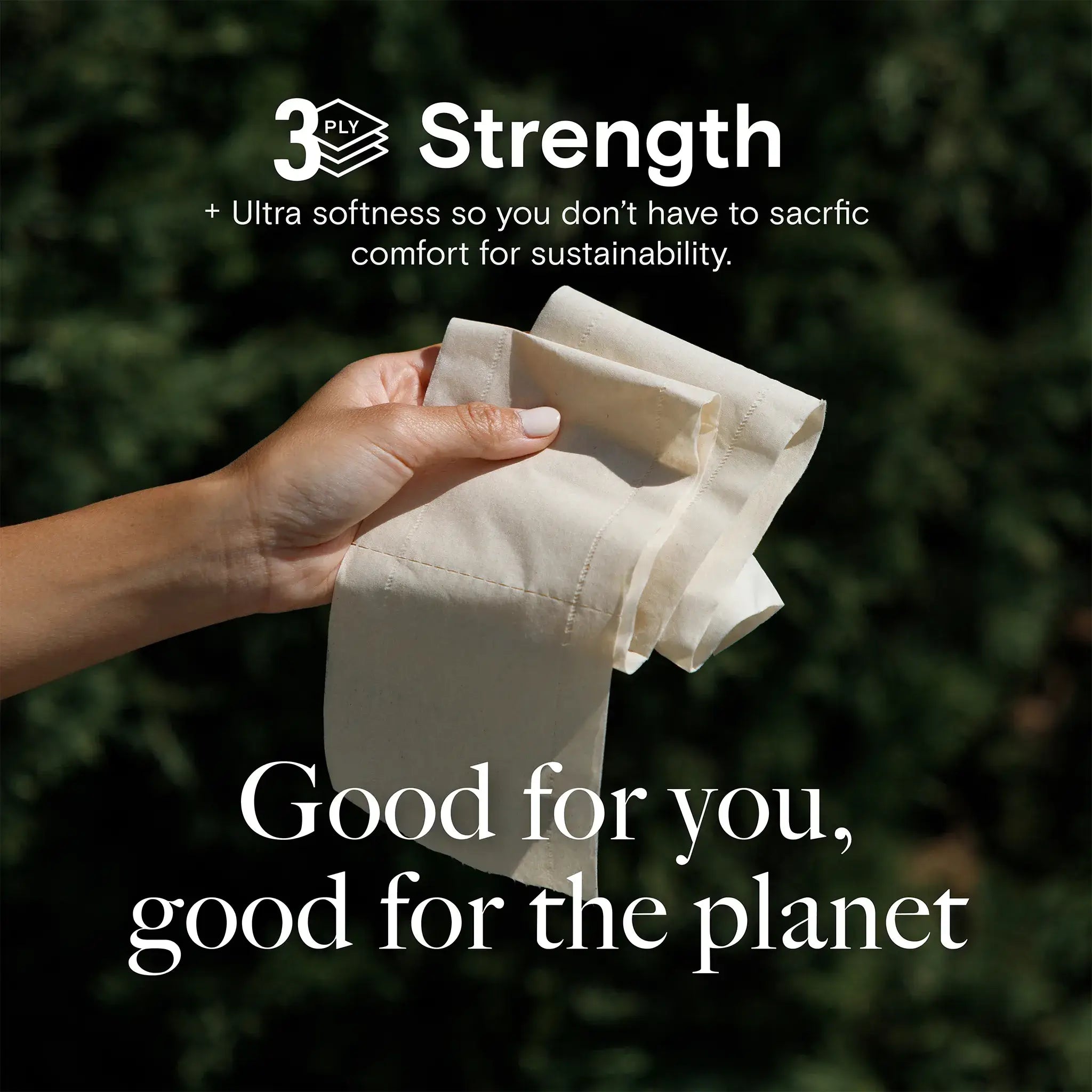
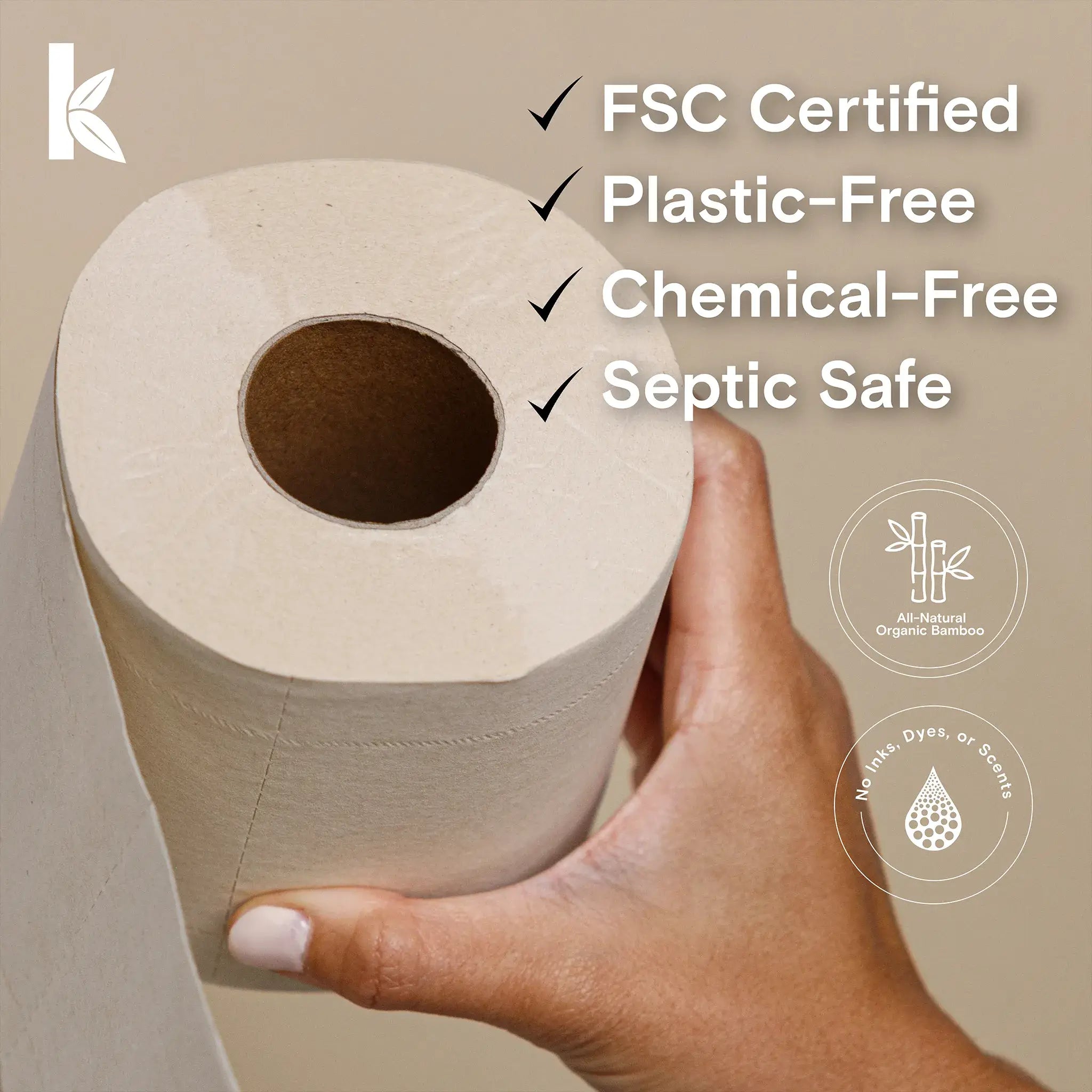
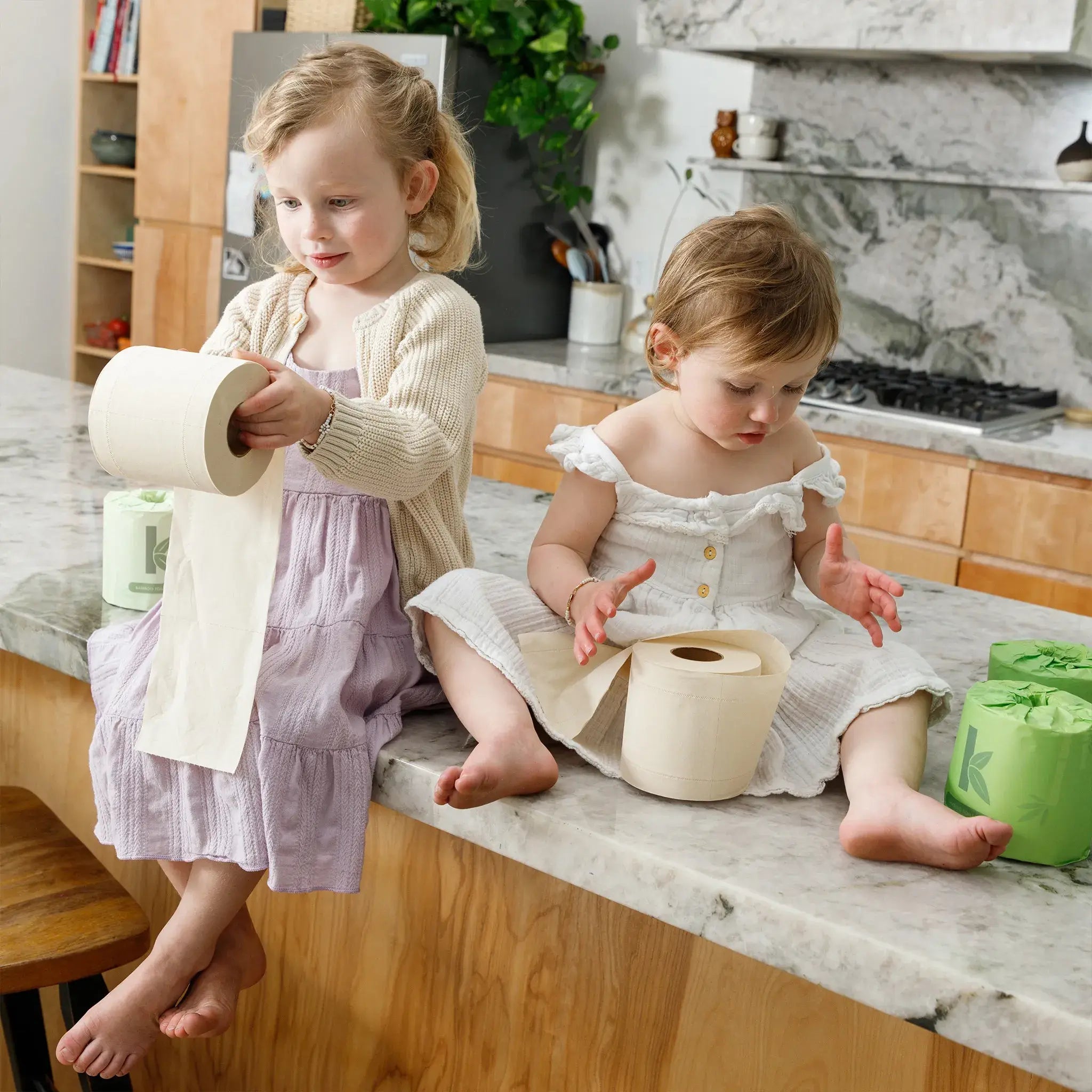

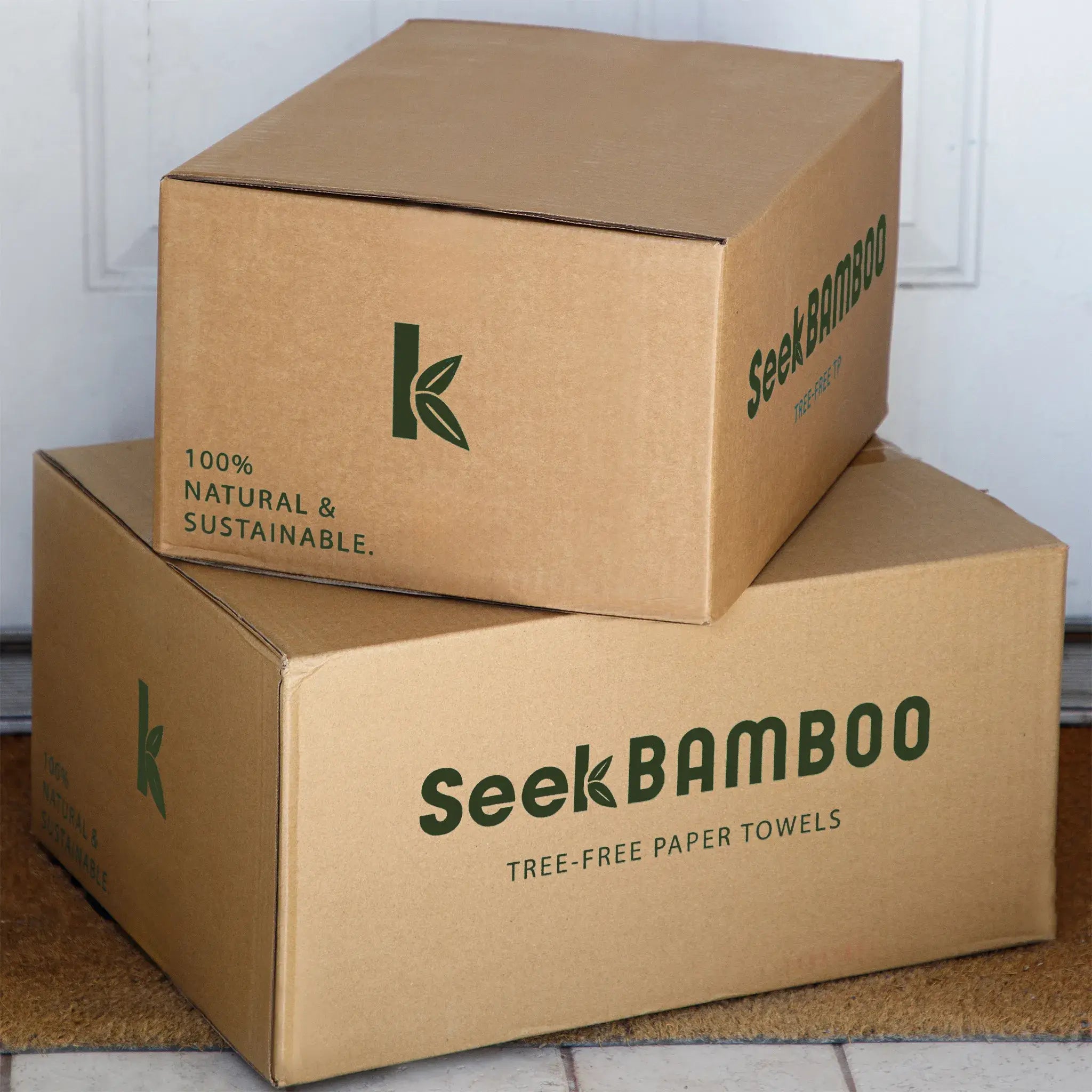
✓ Free of BPA, PFAS, chlorine, dyes, & fragrances
✓ Luxuriously layered 3-ply, 300 sheets per roll
✓ Naturally antibacterial, anti-fungal, & hypo-allergenic
✓ Hassle-free subscription, cancel or pause anytime
Septic System Safety
Many users report that one of their primary reasons for switching to bamboo toilet paper was to find a product that would be safe for their septic systems. For instance, Sarah, a homeowner with an older septic system, shared her concerns about the frequent clogs caused by conventional toilet paper. After switching to bamboo toilet paper, she noticed a significant decrease in plumbing issues. “I was amazed at how quickly it breaks down. It’s been months since I’ve had to call a plumber!” she remarked. This sentiment is echoed by others who have found that bamboo toilet paper dissolves much more efficiently than traditional options, leading to fewer maintenance worries.
Comfort and Softness
In addition to its septic-safe qualities, consumers often highlight the softness and comfort of bamboo toilet paper. Many users are pleasantly surprised by the quality, especially those who were initially skeptical about using a product made from bamboo. Mark, who has sensitive skin, expressed relief after making the switch. “I was concerned that it might be rough, but it’s incredibly soft! It feels much gentler than the regular toilet paper I used to buy.” This softness, combined with the absorbent nature of bamboo, has made it a popular choice for families looking for comfort without sacrificing sustainability.
Environmental Consciousness
For many consumers, the switch to bamboo toilet paper also aligns with their values regarding environmental responsibility. Many users express a sense of satisfaction knowing they are making a positive impact. Lisa, an eco-conscious parent, stated, “Using bamboo toilet paper makes me feel like I’m doing my part to help the planet. It’s reassuring to know that my choice is not only safe for my home but also beneficial for the environment.” This commitment to sustainability resonates with those who want to reduce their carbon footprint and support renewable resources.
Overall Satisfaction
Reviews on various platforms consistently indicate a high level of satisfaction among users who have switched to bamboo toilet paper. Many express that they appreciate the convenience of a product that is both comfortable and safe for their septic systems. With a growing number of brands available, consumers find it easier than ever to access high-quality bamboo toilet paper that meets their needs.
In conclusion, the experiences of those who have transitioned to bamboo toilet paper highlight its effectiveness, safety for septic systems, and environmental benefits. As more people make this switch, it’s clear that bamboo toilet paper not only provides a practical solution but also aligns with a sustainable lifestyle.
Everyday Bamboo Essentials
Bamboo Q&A: Flush Away Your Doubts!
We've got the answers to keep your bathroom routine eco-friendly and clog-free!
What is bamboo toilet paper made from?
Bamboo toilet paper is made from the fibers of the bamboo plant, specifically the pulp derived from its stalks. Bamboo is a grass species known for its rapid growth and strength, making it an ideal material for producing soft and durable toilet paper.
How is bamboo toilet paper produced?
The production process involves several steps. First, bamboo stalks are harvested and processed to extract the fibers. These fibers are then pulped and bleached using eco-friendly methods (many brands use chlorine-free processes) to produce a soft paper that can be rolled and packaged. The process is designed to minimize environmental impact and chemical use.
Why is bamboo toilet paper considered eco-friendly?
Bamboo toilet paper is considered eco-friendly due to its sustainable nature. Bamboo grows much faster than trees (up to 35 inches per day) and can be harvested without killing the plant, allowing for continuous regrowth. Additionally, bamboo requires less water, no pesticides, and fewer resources to grow compared to traditional tree-based toilet papers.
How does bamboo toilet papercompare to conventional toilet paper?
Bamboo toilet paper typically breaks down faster than conventional wood pulp toilet paper, making it safer for septic systems. While many traditional options can take longer to dissolve and may contain synthetic chemicals or additives, bamboo toilet paper is often free from harsh chemicals and is biodegradable, leading to a lower environmental footprint.
Is bamboo toilet paper safe for sensitive skin?
Yes, many users find bamboo toilet paper to be gentle and suitable for sensitive skin. It is usually free from fragrances, dyes, and other irritating chemicals often found in conventional toilet papers, making it a better option for individuals with allergies or sensitivities.
How does bamboo toilet paper breaks ddown in a septic system?
Bamboo toilet paper breaks down in a septic system by the same process as any other natural fiber. The bacteria in the septic tank break down the bamboo fibers into small pieces that can be easily flushed away.
What are the benefits of using bamboo toilet paper to my septic system?
The benefits of using bamboo toilet paper for your septic system include:
- It is septic safe.
- It is made from a renewable resource.
- It is biodegradable.
- It does not contain any harsh chemicals.
- It is soft and comfortable to use.
How does bamboo toilet paper feel compared to regular toilet paper?
Many users report that bamboo toilet paper is soft, smooth, and comparable to or even softer than conventional options. Its texture is often described as luxurious, providing a comfortable experience while being strong enough for effective cleaning.


